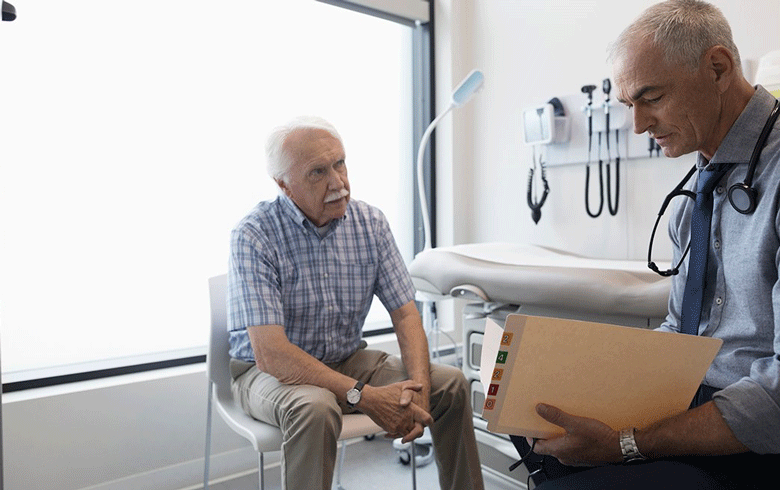The difficulties that Maine island and rural residents face in accessing healthcare is even more challenging for older residents. While many choose to “age in place” in their homes and communities, their need for health and supportive services often increases with age and the barriers can be overwhelming.
A few rural and island towns have small health clinics, and Mount Desert Island has its own hospital, but others generally have no local health services or rely on trained community members. Specialty services from simple eye or dental exams to cataract surgery and weekly cancer treatments are only available at distant locations. Unbridged island residents must take a ferry. For rural residents it may mean a five-hour drive to an appointment in Bangor.
Older Mainers may also struggle to find long-term care and nursing home placement, as well as palliative and hospice resources. Health can also be compromised by social isolation, lack of access to physical activities, especially in winter, as well as challenges in finding adequate nutrition, home health aides, and caregivers.
As people age, their ability to drive may be compromised by health or cognitive issues…
Respite services for caregivers are often non-existent. A bright spot are all the friends and neighbors who generously help with these needs, but isolated individuals may have no one to call.
A common thread that weaves through all these difficulties is a lack of transportation options. The Maine State Plan on Aging 2020-2024 notes that “the need for transportation services does not match the availability of services” and that there is also a lack of knowledge about where to turn for information. This leads to unmet health needs, missed appointments, and a break in the continuum of services needed for optimal health.
As people age, their ability to drive may be compromised by health or cognitive issues but some continue to drive because there are no other options. A recent National Rural Health Association policy paper pointed out that transportation solutions for rural older adults begin with changing the discussion from a focus on transportation for health needs to viewing transportation as a “social determinant of rural health and community vitality.”
Even when transportation options exist, they may be confusing and hard to access. In a recent email, Deer Isle town manager Jim Fisher listed six different transportation options available to island residents. Each has its own phone number, eligibility requirements, service areas, and other limitations. Some programs rely on volunteer drivers, a friendly neighbors-helping-neighbors option but a difficult model to sustain even before the pandemic.
While Maine Seacoast Mission provides an important health lifeline to unbridged Maine islanders, these services are generally lacking in other rural areas. One modern option is telehealth, where health providers interact with patients via Zoom or other internet platforms including smartphones. This solves some of the transportation and access issues but comes with additional barriers. Older Mainers may not have reliable internet service and, if they do, they may not know how to navigate computer requirements to connect with their provider. Even with telehealth, many health needs require in-person examination or laboratory tests.
Another barrier for older island and rural Mainers is cost. Paying for gas, internet service, and a computer or smartphone is beyond the very limited fixed incomes for some Mainers over 50. Additionally, although Medicare and MaineCare generally pay for telehealth consultations, some insurance companies do not.
All these issues are a challenge for island and rural Mainers, and a priority for AARP Maine’s legislative advocacy staff and volunteers. This legislative session, AARP Maine is following a number of bills that cover healthcare, prescription drug costs, transportation issues, telehealth, broadband service, and a proposed caregiver tax credit.
To be part of the solution contact your state representative and senator. Let them know what health care issues your older community members face and what needs to be done. Share your stories with them and with AARP Maine: www.aarp.org/me or email me@aarp.org.
Suzanne Carmichael lives in Deer Isle and is an AARP Maine volunteer.





